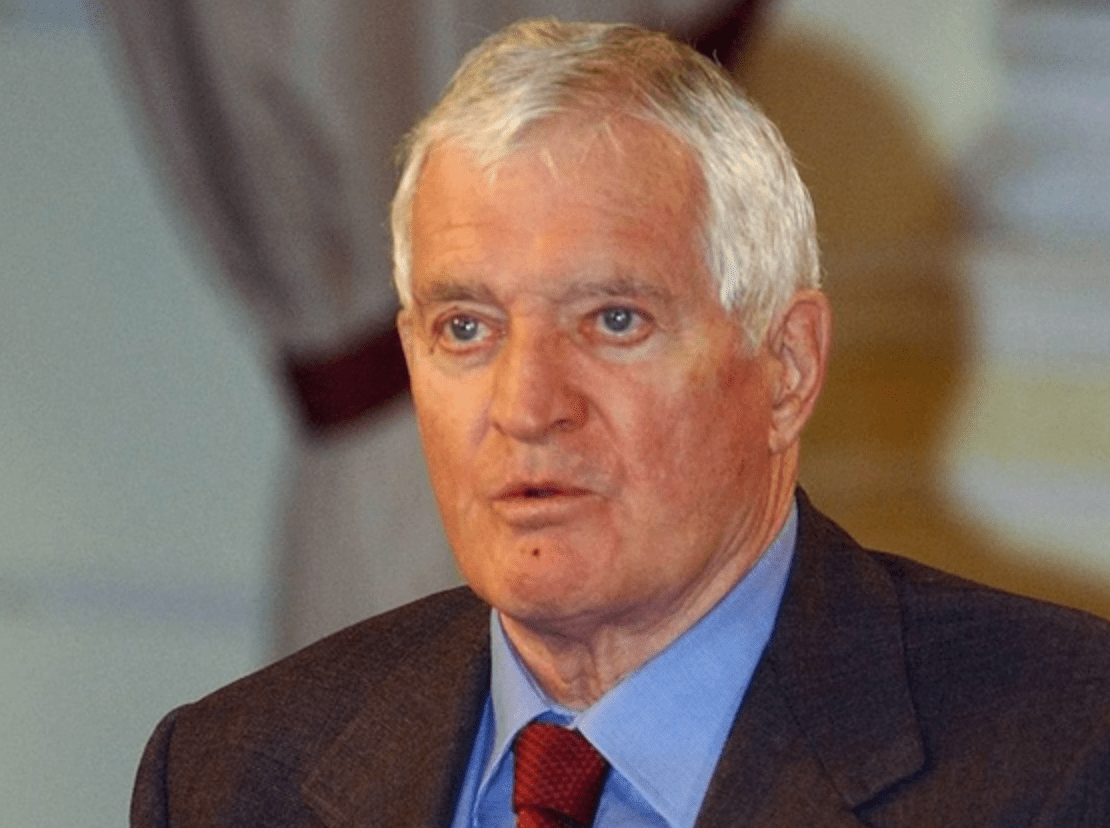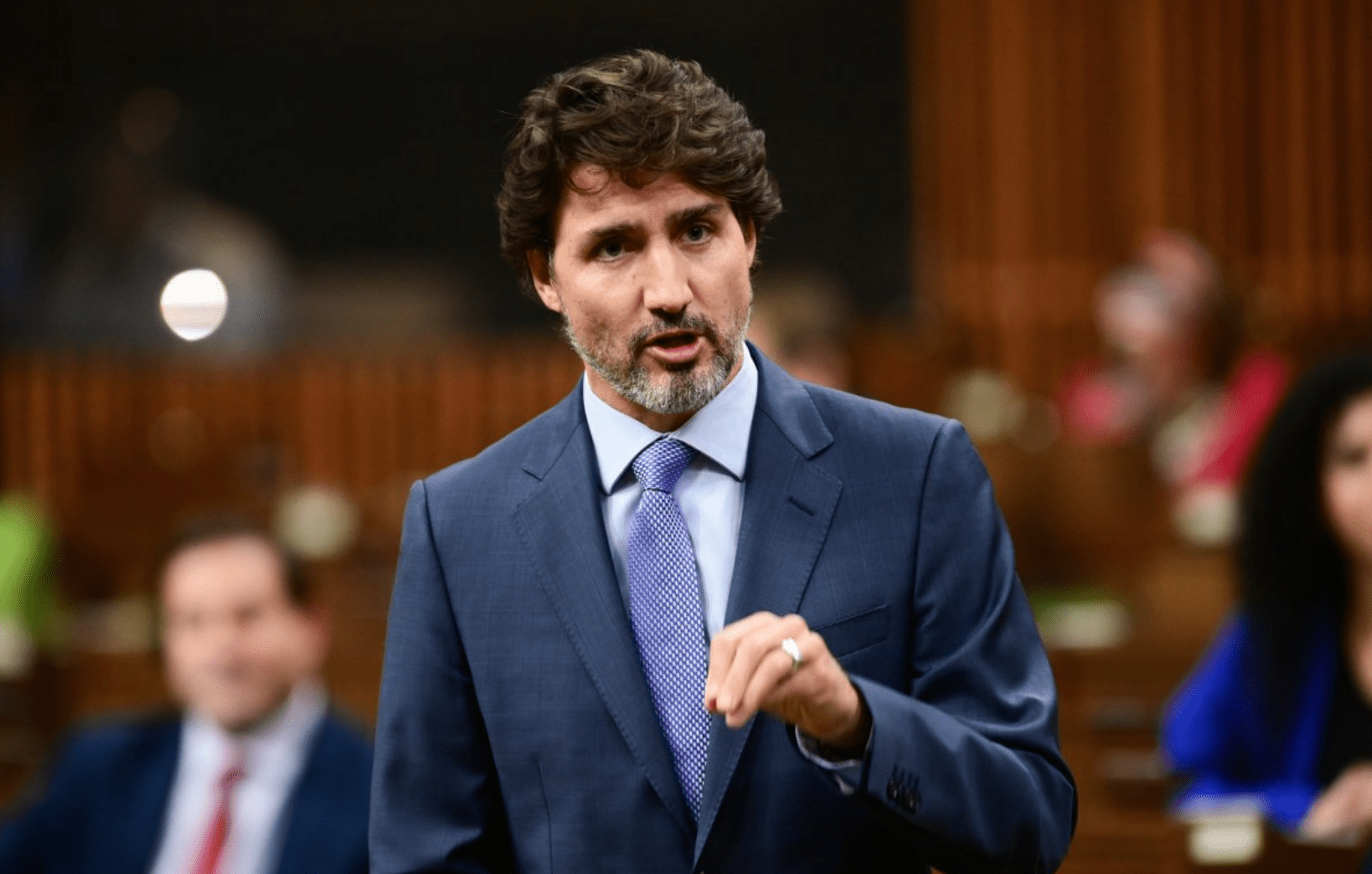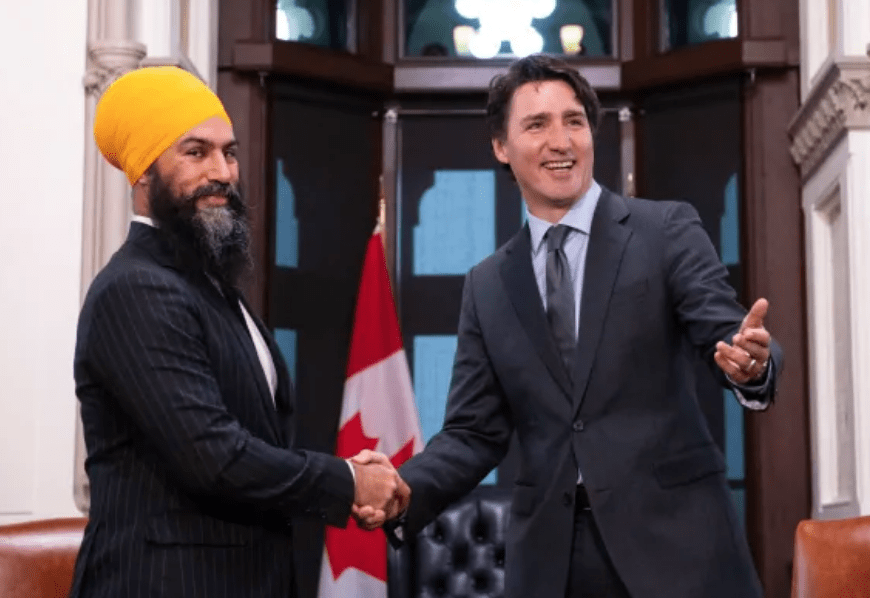On October 6th, citizens from coast to coast bade their final farewells to Canada's 17th Prime Minister, John Turner, whose body was laid to rest in Toronto at St. Michael's Cathedral. He died peacefully on September 19 at the age of 91, and, as is fitting of all former prime ministers, was given an official state funeral to mark his passing.
Unlike previous state funerals, however, of which there have only ever been 31 in Canadian history, Turner's did not receive quite the attention and fanfare that was warranted for such an occasion.
There were no funeral processions in the streets, nor was Turner's body made accessible in Parliament for members of the public to pay their respects. Even the cathedral itself, a space that normally would have been packed full of mournful observers, was near empty as a result of social distancing protocol.
Once again, the COVID-19 pandemic can take credit for infringing upon the country's historical customs and traditions.
Of course, the news media did their best to cover the event with the attention Turner's funeral deserved. Many outlets live streamed the funeral to provide Canadians the opportunity to tune in for Turner's official valediction.
Yet even this substantial coverage was no substitute for the extensive spotlight which typically occurs for those who have been granted the rare honor of a state funeral.
I suppose such an ending was somewhat fitting for Turner though; a man for whom timing, in death, as in life, has never been his forte.
Instead, it has often proven elusive; a curse of sorts that has plagued Turner for decades, beginning in his days at university.
In his early, adolescent years, Turner proved an outstanding athlete. He excelled best at track and field, and at one point, set the Canadian record for the 100-metre dash. He even qualified for the 1948 Olympics, though was unable to compete after suffering an injury to his knee, effectively ending his future in competitive sports.
Unfortunately for Turner, that setback was the first of many such instances of poor timing which sidelined his ambitions, and never more so than when he pivoted from sports to politics.
From the moment Turner began his political career, he appeared destined for greatness. He had all the qualities one would typically expect to find in a leader.
He was intelligent and worldly; having succeeded in winning a Rhodes Scholarship and later going on to study in Oxford and Paris. He was also athletic and affable, and handsome to boot. With piercing blue eyes and movie star good-looks, Turner soon became referred to as "Canada's Kennedy", and at one point even famously courted Princess Margaret.
With such an appealing background, it was little wonder he was considered the Liberal Party's "golden boy", a natural successor to outgoing prime minister Lester Pearson, for whom he served ably in cabinet under.
Yet again, though, poor timing proved his undoing.
In the party's 1968 leadership race, Turner had the bad luck of facing off against the strangely seductive and charismatic Pierre Trudeau, who bested him, as well as every other competitor, for the Liberal crown. Always the good soldier, Turner carried on faithfully for Trudeau, and helped his former rival implement his vision of a 'just society' in the important ministries of justice and finance.
After seven years of loyal service, though, Turner grew tired of playing second fiddle and withdrew from the Liberal cabinet to join the world of corporate law. He eventually returned to electoral politics in 1984, after Trudeau took his final 'walk in the snow', and finally did win both the Liberal leadership and the prime ministership for which he so badly coveted.
Yet, even though he succeeded, Turner's victory would prove pyrrhic, as unfortunate timing once again offset his best laid plans.
After 20 years of almost uninterrupted rule, voters had grown tired with Canada's 'natural governing party.' They began to seriously consider their Conservative alternative, just as Turner took over the reins of the moribund Liberals.
Of course, Turner did not help matters either.
He stumbled right out of the gate by foolishly dissolving parliament and calling an early election, as well as allowing himself to be scolded down in the July 25th debate by Brian Mulroney over the issue of patronage appointments.
When the ballots were counted in the aftermath of the 1984 election, Turner not only led the Liberals to defeat, but also to its lowest seat count (at that time) in the party's history.
He had served just 79 days as prime minister, the second shortest in Canadian history, yet dutifully stayed on as Leader of Her Majesty's Loyal Opposition to rebuild his shattered party and hopefully reclaim his lost mantle.
In opposition, however, Turner proved no less ill-timed.
While Turner did succeed in rebuilding the Liberals back, more than doubling the party's seat count in the 1988 election, his misguided support of the Meech Lake Accord lost him support throughout English Canada, just as his commendable crusade against the Canada-US Free Trade Agreement helped splinter the progressive vote, leading to another Tory victory. Less than two years later, Turner would resign as Liberal leader, and from electoral politics altogether.
With such a history of bad luck and poor timing, it might be easy for some to pigeonhole Turner as a failure.
But that, however, would be completely inaccurate portrayal of the man.
For while Turner's was a life consistently hindered by poor timing, it was also a life full of accomplishment.
He served with distinction for an impressive 23 years as a Member of Parliament, for which he became known just as much for his graciousness and civility as he was for his competency.
As Finance Minister, he left behind a mixed record, pleasing some conservative observers with his fiscal restraint and tax cuts, whilst appealing to progressives with budgets that improved Canada's social safety net by increasing old age pensions and unemployment insurance benefits.
Crucially though, he displayed principle when he resigned in the wake of having to implement wage and price controls, a policy the Liberals had campaigned vehemently against in the 1974 election. It was a classy move, and one not seen often enough in Ottawa these days.
Most importantly, under Turner's stewardship as Justice Minister, Canada took some incredibly important steps on its path towards full equality by implementing official bilingualism, as well as reforming the criminal code, which among other things, partially decriminalized homosexuality, and therapeutic abortions, while also liberalizing divorce and restricting gun possession.
As Turner's biographer Paul Litt has written, "More than any other Canadian politician, [Turner] translated the spirit of the 1960s into substantial changes to the laws of the land."
Regardless of the poor timing that hindered him throughout his political career, Turner leaves behind a rich legacy for the country he so dearly loved.
May he rest in peace knowing he left this country better off than he found it.
Photo Credit: CBC News













